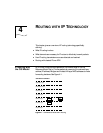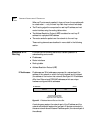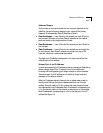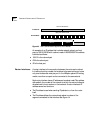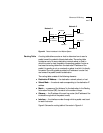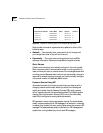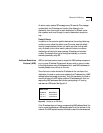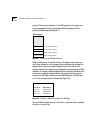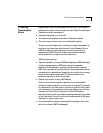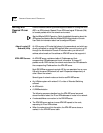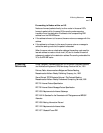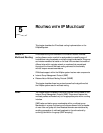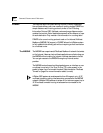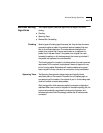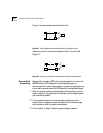
IP Routing Transmission Errors 4-9
IP Routing
Transmission
Errors
Because each router only knows about the next hop, it is not aware of
problems that might be further “down the road” toward the destination.
Destinations can be unreachable if:
■ Hardware is temporarily out of service
■ You inadvertently specified a nonexistent destination address
■ The router does not have a route to the destination network
To help routers and hosts know of problems in packet transmission, an
error-reporting mechanism called Internet Control Message Protocol
(ICMP) provides error reporting back to the source when routing
problems arise. ICMP allows you to determine whether a delivery
failure resulted from a local or a remote malfunction.
ICMP does the following:
■ Tests the reachability of nodes (ICMP Echo Request and ICMP Echo Reply)
A host or gateway sends an ICMP echo request to a specified
destination. If the destination receives the echo request, it sends an
ICMP echo reply back to the original sender. This process tests whether
the destination is reachable and responding and verifies that the major
pieces of the transport system work. The ping command is one
frequently used way to invoke this process.
■ Creates more efficient routing (ICMP Redirect)
Often the host route configuration specifies the minimal possible
routing information needed to communicate (for example, the address
of a single router). The host relies on routers to update its routing table.
In the process of routing packets, a router may detect a host not using
the best route. The router then sends the host an ICMP redirect,
requesting that the host use a different gateway when sending packets
to that destination. The next time the host sends a packet to that same
destination, it uses the new route.
■ Informs sources that a packet has exceeded its allocated time to exist
within the network (ICMP Time Exceeded)



